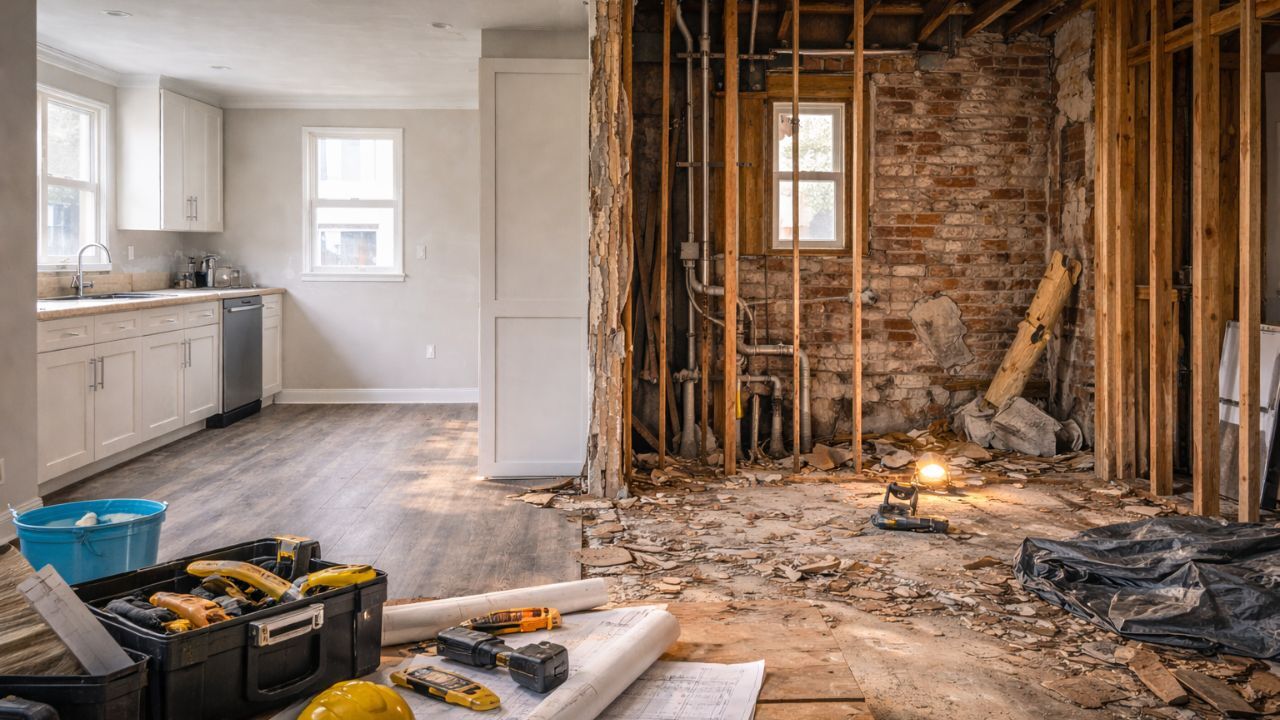 Fixer uppers attract buyers looking for value, personalization, and long term upside. The idea of transforming a property into something uniquely yours is compelling. However, not all renovation opportunities are created equal. The real skill in buying a fixer upper is distinguishing between manageable cosmetic upgrades and deeper structural or functional limitations that can quietly erode your budget and timeline.
Fixer uppers attract buyers looking for value, personalization, and long term upside. The idea of transforming a property into something uniquely yours is compelling. However, not all renovation opportunities are created equal. The real skill in buying a fixer upper is distinguishing between manageable cosmetic upgrades and deeper structural or functional limitations that can quietly erode your budget and timeline.
Cosmetic Versus Structural Changes
Paint, flooring, light fixtures, cabinet hardware, and landscaping are typically manageable improvements. These updates are visible, measurable, and easier to estimate financially. Structural modifications such as moving load bearing walls, relocating plumbing lines, replacing subflooring, or altering rooflines introduce complexity and risk. Once walls are opened, surprises often follow. Understanding where a project falls on this spectrum protects both your budget and your expectations.
Layout Efficiency Matters More Than Finishes
Even a dated home can function beautifully if the layout flows logically. Room placement, natural light exposure, storage access, and traffic patterns influence daily comfort more than surface materials. Awkward transitions between rooms, narrow hallways, or poorly positioned kitchens may require significant redesign to correct. Before focusing on finishes, evaluate whether the core layout aligns with modern living patterns and your personal lifestyle.
Mechanical Systems Tell the Real Story
Cosmetic flaws are visible. Mechanical issues are not. Roof condition, heating systems, plumbing integrity, electrical capacity, and foundation stability carry significant financial weight. A newly painted wall cannot compensate for outdated wiring or aging pipes. Inspections are critical when evaluating a fixer upper. Replacing major systems can quickly shift a promising deal into an expensive commitment.
The Energy Investment Factor
Renovation requires more than money. It requires emotional bandwidth. Decision fatigue, contractor coordination, permit timelines, and material delays can test even patient buyers. Some homeowners thrive on projects and transformation. Others find the process draining. Be honest about your tolerance for disruption before committing to a property that demands ongoing oversight.
A smart fixer upper purchase focuses on fundamentals first and finishes second. When structure, layout, and systems are solid, cosmetic updates become opportunity rather than risk. The best renovation projects start with strong bones and realistic expectations.
 Buying a home is a major milestone, and knowing when you are truly ready can give you confidence throughout the entire process. Many future homebuyers wonder if their finances are strong enough or if they should wait another year. The truth is that homeownership readiness is less about perfection and more about preparation. When several key financial indicators line up, you can move forward with clarity, confidence, and a sense of stability.
Buying a home is a major milestone, and knowing when you are truly ready can give you confidence throughout the entire process. Many future homebuyers wonder if their finances are strong enough or if they should wait another year. The truth is that homeownership readiness is less about perfection and more about preparation. When several key financial indicators line up, you can move forward with clarity, confidence, and a sense of stability. Buying a home is an exciting step and a powerful wealth building move, but the purchase price is only part of the financial picture. Many buyers focus on the down payment and monthly loan amount, then feel surprised by the ongoing costs that come with owning a home. Understanding these expenses ahead of time helps you buy with confidence and avoid unnecessary financial stress.
Buying a home is an exciting step and a powerful wealth building move, but the purchase price is only part of the financial picture. Many buyers focus on the down payment and monthly loan amount, then feel surprised by the ongoing costs that come with owning a home. Understanding these expenses ahead of time helps you buy with confidence and avoid unnecessary financial stress. A home can look beautiful on the surface, but a past flooding event can create long term challenges that buyers need to understand. If you are considering a property with any history of water intrusion, taking time to learn the risks can protect your safety, your finances and your peace of mind.
A home can look beautiful on the surface, but a past flooding event can create long term challenges that buyers need to understand. If you are considering a property with any history of water intrusion, taking time to learn the risks can protect your safety, your finances and your peace of mind. When buying or selling a home, the foundation is one of the most important yet overlooked elements. It supports the structure, affects durability, and can influence everything from comfort to resale value. As a real estate agent, I often remind clients that understanding the type and condition of a home’s foundation can help them make informed choices and avoid costly surprises later on.
When buying or selling a home, the foundation is one of the most important yet overlooked elements. It supports the structure, affects durability, and can influence everything from comfort to resale value. As a real estate agent, I often remind clients that understanding the type and condition of a home’s foundation can help them make informed choices and avoid costly surprises later on. Home appraisals are a crucial step in the home buying process. It determines the property’s fair market value and helps lenders decide how much money to loan for the purchase. Ideally, the appraisal matches or exceeds the agreed-upon purchase price. However, when the appraisal comes in lower than expected, it can cause stress for both buyers and sellers. Knowing how to handle this situation calmly and strategically is key to keeping the deal on track.
Home appraisals are a crucial step in the home buying process. It determines the property’s fair market value and helps lenders decide how much money to loan for the purchase. Ideally, the appraisal matches or exceeds the agreed-upon purchase price. However, when the appraisal comes in lower than expected, it can cause stress for both buyers and sellers. Knowing how to handle this situation calmly and strategically is key to keeping the deal on track.